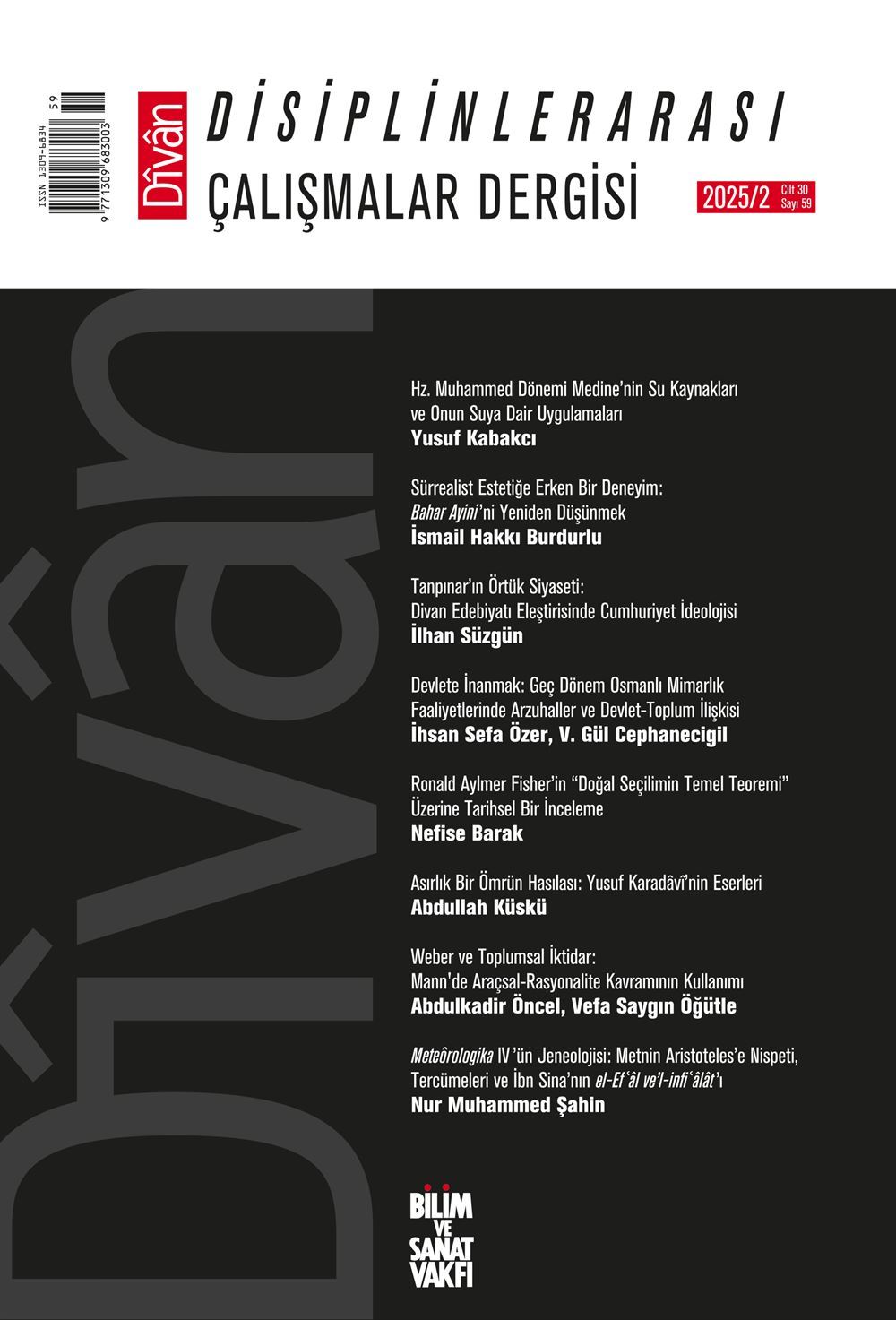Disiplinlerarası Çalışmalar Dergisi Sayı 59
Articles
This study examines the "Fundamental Theorem of Natural Selection" (hereafter, the Theorem), first introduced by Ronald Aylmer Fisher in his 1930 book The Genetical Theory of Natural Selection. Fisher formulated the theorem as: "The rate of increase in fitness of any organism at any time is equal to its genetic variance in fitness at that time."
Nefise BARAKThis article explores how Tanpınar’s critique of divan literature reflects and reinforces the ideological aims of the Republican reforms. His criticisms go beyond literary evaluation; they serve as an intellectual justification for the Republic’s modernization agenda and reveal Tanpınar’s implicit political stance.
İlhan SÜZGÜNThis study aims to achieve two main objectives. First, it identifies the water resources available in Medina during Prophet Muhammad’s era (622–632) based on historical accounts. Second, it examines the Prophet’s principles and practices regarding the fair, Islamic, and humane use of these resources.
Yusuf KABAKCIThis study examines The Rite of Spring as a work that challenges the structural and aesthetic boundaries of modernist music, exploring its potential affinities with surrealist aesthetics through specific formal and rhythmic configurations.
İsmail Hakkı BURDURLUThe study offers an analysis not only of how petitioning practices evolved during the transformation of the nineteenth-century Ottoman state, but also of the agency exercised by social actors within this transformation. Ultimately, it aims to illuminate the historical and socio-political dimensions of construction activity in the late Ottoman Empire.
İhsan Sefa ÖZER V. Gül CEPHANECİGİLThis article examines the scholarly contributions of Yūsuf al-Qaraḍāwī, a prominent figure in the modern Islamic intellectual tradition, with a particular focus on his intellectual development and scholarly output. Al-Qaraḍāwī significantly influenced his interlocutors through his distinctive formulations of Islamic daʿwah, economic thought, and jihād. Known for his command of both oral and written expression, many of his public speeches were published alongside his written treatises.
Abdullah KÜSKÜRationalization is one of the central concepts capturing the spirit of modernity. Max Weber argued that the drive toward rationalization is a key force behind historical transformation, with instrumental rationality emerging as the dominant mode of action in the modern era. Instrumental rationality, in Weber’s formulation, refers to the strategic organization of actions to achieve specific goals.
Abdulkadir ÖNCELThis article examines the fourth book of Aristotle’s Meteôrologika, a component of his natural philosophy corpus.
Nur Muhammed ŞAHİN





